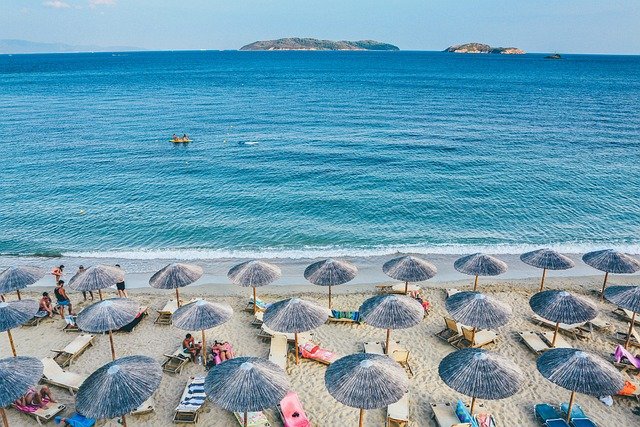Italy’s beaches are crowded with millions of Italians in the summer. This often means paying a hefty price to rent the same cabin, the same deck chair, and the same umbrella that covers the same amount of sand in the same bonnet closer to the coast year after year. Private beach clubs have prevailed along Italy’s vast stretch of coastline.
Multiples are automatically renewed to the same owner rather than through a bidding process, resulting in an unbreakable dynastic structure. Statistics show that less than half of the country’s beaches are considered open to the public and suitable for swimming. As a result, these seaside lidos are frequently criticized for taking over the country’s shores and becoming increasingly out of reach for ordinary Italian families. By taking up almost half of its beaches, they eliminate all competition. Even in restaurants, it can be challenging to rent sun loungers and umbrellas because entire rows of seats are usually reserved for patrons.
Political debate on beach club reform in Italy
MPs and environmentalists in Rome are actively pursuing legislative changes to allow concessions along the Italian coast. Italy’s multi-party government has decided to try the private beaches in January 2024. Beach clubs in Italy are wary of these measures as they will upset and jeopardize the privilege they have long enjoyed. They assert that the beaches in question are public and that closing areas with towels or umbrellas would privatize a site created for public use.
Conservative lawmakers, whose protectionist principles align with a desire to protect the interests of Italy’s coastal economic class, have strongly opposed these concerns. Some legislators say the media has unfairly labelled these beach clubs and their owners as parasites profiting from the system. The future of Italian beach clubs is uncertain, and the details of the bill are still being discussed. Both clubs need their work recognized
Italy has a long history of having beach clubs.
Rows of brightly coloured chairs, umbrellas and wooden huts have become a feature of the Italian coast. They are mainly controlled by the family and passed on to the next generation. Some believe they symbolize the nation’s economic recovery after World War II.
Club owners are worried about the direction of the bidding process. They argue that global corporations or corrupt business owners could try to take over coastal properties, resulting in a dehumanized riverside area. It comes after Red Bull recently purchased a port and an island near Trieste in northeastern Italy.
Everyone’s rating: Will the reforms threaten the tourism industry or improve the market?
However, something could be about to change. The Italian government has agreed to a reform that requires Lidos to re-register their licenses as part of the country’s post-COVID strategy. This is a result of the market liberalization objective of the Bolkenstein Directive in the EU.
Although the current system has been criticized for encouraging nepotism and closed markets, it also contributes to the fact that some of Italy’s 12,166 lidos are nearly as old as the country’s constitution.
Although the minor changes, Bagni Valentino’s Sebastiano Gambetta has shown that many of their customers have been frequenting our beach club for decades. Because of this reform, local traders saw it as a threat.
They fear the reform will hurt Italy’s tourism industry, negatively affect the livelihoods of hundreds of people and lead to unfair competition as larger companies try to take over the wealth that makes them rich. seaside advantage.
Green Reform Perspective
Environmental activists speak on the opposite side of the beach debate Led by Agostino Biondo, they argue that beaches are an area that should not be engaged in revenue because of the growing environmental threat. Guardians use the Barcelona coast as an example of a perfect public beach for the city.
They argue that a fundamental overhaul of beach management in Italy could radically change the coastline, turning much of the coastline into a real gem in a country heavily dependent on tourism. . Everyone should have free access to the ocean at public beaches.



